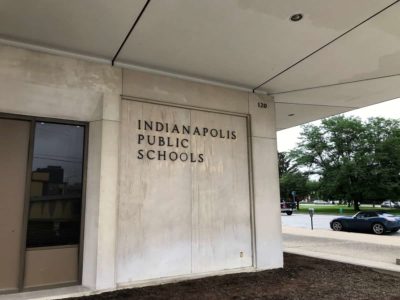
Business and industry leaders have been harping on the importance of culture for many years, as a quick look at LinkedIn or a perusal of the latest New York Times Best Seller list will attest. Many companies that are rated at the top of their industries as the “best places to work” have devoted much time and many resources to creating a company culture that taps into the intrinsic motivation, the higher purpose, and the desire for trusting relationships among members of their workforce. At DRIVE Educational System, we believe it is critical to do the same for schools across North Carolina by directly addressing climate and culture issues.
WestEd recently released a major report as part of the long-standing Leandro education case titled How Teaching and Learning Conditions Affect Teacher Retention and School Performance in North Carolina. This is just one major report among many across the nation that are now pointing to the correlation between school climate, student achievement, and other key indicators of a successful learning community.
For DRIVE and our partner, the Alliance for the Study of School Climate (ASSC), this connection is not a new one. Yet schools that emphasize and prioritize school climate and culture are still outliers.
The positive effects of improving school climate are the motivating force that launched DRIVE’s work nearly six years ago. DRIVE’s purpose is to ignite passions, unite communities, and elevate possibilities by building a Power of Our culture that develops an integrated why, focuses on creating positive trusting relationships, and fosters the power of intrinsic motivation.
As the co-founders of DRIVE Educational System, we have spent a combined 70 years in a variety of roles as North Carolina public educators seeking to improve the outcomes of students. Through years of research and experience in transformative school implementation methods, we recognized the importance school climate and intrinsic motivation played in creating the conditions for optimal learning. When we joined forces with Dr. John Shindler and the ASSC, based at the University of California – Los Angeles, a truly innovative process was born.
DRIVE’s comprehensive school climate audit allows school leaders to calculate and measure school climate in eight unique dimensions and points to specific action steps that leadership can take to improve the overall climate of the school. Too often in education, design processes and decisions are made without truly including input from all stakeholders. So, we start the process by having all stakeholders (students, teachers, administration, parents, and community members) take a federally accredited school climate survey and participate in focus groups. The survey is accredited because of its high correlation to student achievement and other key outcomes, like discipline data and teacher retention.
DRIVE coaches spend one to two days facilitating the focus groups while conducting building walk-throughs and observations. They spend time talking with and observing the actions of students, teachers, bus drivers, office staff, parents, community partners, and all other stakeholders that create the overall school climate. This information, combined with the results of the climate survey, is provided in a report that becomes the cornerstone for school-wide climate transformation and the creation of an integrated purpose. This purpose becomes the guiding path for students, teachers, and community members as they work together for continued school improvement.
One of the challenges schools have faced over the years is actually coming up with concrete metrics to define what makes up school climate. During our previous roles, ranging from school principal to district office director, we were aware that climate was important and wanted to improve it, but we had no real way to measure it and no concrete way to know if the action steps we were taking were working.
DRIVE has figured out how to do this. Using the research of Dr. Shindler and the ASSC allows us to pinpoint those eight critical dimensions, analyze the data from the survey and focus groups, and work with school improvement teams to identify specific steps that can be put in place to make an immediate impact. The data collected is stored by the Alliance and used to further explore the correlation of school climate to valuable school measurement indicators.
One of the greatest opportunities we have found in our implementation of the climate audit is that all schools can benefit from it. Whether schools are listed as exemplary, struggling, low performing or somewhere in between, they will learn where they are on the ASSC’s “roadmap” and determine the next steps for moving towards an empowering, trusting, positive learning community.
DRIVE’s work since 2015, and over 20 years of research from the ASSC, has shown that a concerted effort to improve school climate can solve real problems as opposed to symptoms of problems. This work will have a lasting impact on student achievement, teacher retention, family engagement and discipline referrals. It is exciting to see that educators are adopting innovative methods to improve student outcomes in this foundational way.
Many of our colleagues across the state are passionate about making North Carolina first in Education. We believe that focusing first on improving school climate is a critical part of this mission, and we are committed to doing everything in our power to make this a reality.
Editor’s note: This piece is part of a week-long series on innovation. Editing support was provided by Dr. Robert Smith and Kayce Smith of UNC-Wilmington’s Watson School of Education.





